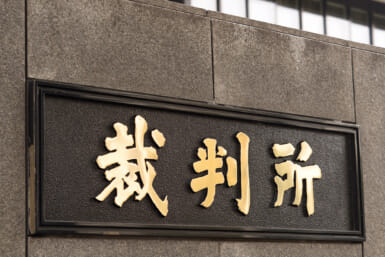I’m not sure whether everyone would agree with this, but my sense is that a pretty good indication of a nation’s health is its newly-emerging small companies. They provide the blood transfusions into an economy, bringing new technology, new entrepreneurial energy and new capital flows.
They serve as catalysts to change in big companies and a few of them grow to be big themselves. They provide jobs for young people in challenging, high-growth settings rather than in the grey-on-grey corporate monoliths that dominate the “old economy” here. No one with any gumption wants to spend a lifetime working for (fill in a dinosaur name).
“Small companies,” says Nobuyuki Nakahara, a friend of mine at the Bank of Japan, “are absolutely crucial to Japan.”
That’s right. Nakahara-san should know. He spent most of his career in business. He is in fact the only former CEO serving on the nine-man Policy Board at the Bank of Japan, a rather influential body. I take heart from the fact that, as seen from the lofty eminence of the central bank, there is one person who thinks in terms of small companies rather than just the same old dreary big ones.
Meanwhile, to find out how the littl’uns are doing I decided early this year to meet as many CEOs as I could. I was challenged to do so over lunch one day by Kenji Morita, editor-in-chief of Money Japan; he thought I did not have the gumption to take up the challenge, so boo to him. I decided then to interview 100 shacho of small companies. A small team working with me drew up a list of companies, using criteria related to historic growth of earnings and sales.
All the CEOs I am seeing are presidents of companies newly quoted on one of the three stock-markets for small companies to list on—namely NASDAQ Japan, Mothers (part of the Tokyo Stock Exchange), and the old JASDAQ. So far I have interviewed 30 shacho, most of them in March. The results are tremendously encouraging, I must say, if at best tentative.
First, there is little reason to follow the world press in deciding that the world’s second largest economy is somehow finished. In fact, this economy exhibits exactly the key phenomenon that anyone would expect of Japan, given its record of introducing new technology faster here than anywhere else in Asia. New hi-tech companies abound. To date I have not visited them all, but here is a short list of those that caught my eye.
They are: RealVision (it makes specialised LSI devices) down in Shin-Yokohama, I was there; Yozan (software packages); Cyboz (groupware), lately moved up to Tokyo from Osaka; and one or two more such as Rakuten (Internet shopping mall).
These companies were all created by their current shacho and are still at a very early stage of development. To these names I might add ImageONE (image transmissions) and NextCom (network equipment). What these firms all have in common is a devotion to technical excellence plus exceptional entrepreneurial drive. Both the last two companies, by the way, are headed by men who put the NASDAQ brand on their meishi. I took note of this vote of confidence in this country’s newest stock market.
Second, I was particularly impressed by the quality of the firms founded by Masayoshi Son, as joint ventures, and floated on NASDAQ Japan (Son-san owns a lion’s share, over 40% still, of NASDAQ Japan). You hear so much about Son in and around the markets, and so much of it is hostile, if not overtly racial—he has Korean ancestry—or personal and very rude.
Japan’s richest entrepreneur does not need anyone to rush to his defense, but I was impressed, specifically, by the fact that his JV companies—I visited E*Trade Japan (brokerage including online broking) and Morningstar Japan (mutual fund rating)—are small, trim operations run by ex-Nomura men with exactly the focus and professionalism that we all expect of Nomura-trained execs.
If Son-san leads a flashy life, and if he drives a Rolls Royce—I have no idea—there is none of that “flash” around the offices of the two firms above. They are sober, dogged outfits, keeping themselves small, and keeping low profiles. I liked that.
Third, and this is not so good, I was surprised to find an extreme paucity of women executives and Western businessmen around the newly emerging firms in Japanese corporate life. Out of our 100 companies, a solitary one, the subsidiary of an American parent, ValueClick Japan, has a gaijin in charge—a charming young Kiwi (New Zealander) called Jonathan Hendriksen. And women? Again, only one of our 100 firms features a lady shacho. She is Naomi Munetsugu of Ichibanya, hailing from Aichi Prefecture. I will offer an invitation to lunch at the Press Club to the first person to get back to me with correct identification of the trade she is in. No, I won’t, I take that back. It’s too easy, all anyone has to do is to look it up in Toyo Keizai‘s excellent Shikiho quarterly.
The company is a curry shop chain, quoted on JASDAQ, if you will believe this, as of February 2000—they fulfilled our criterion for listing among our 100 firms and in they went.
Fourth, and most impressively, most, if not all, of the 100 companies have not the faintest idea how to do their Investor Relations. One shacho, who shall remain nameless, bemoaned the fact that his company’s PER was so low, relative to others—meaning that he thought his stock price should be a lot higher (on NASDAQ Japan, as it happened). What should he do, he asked?
As he put the question, I answered, however rude it might sound: he had to meet people, including analysts, and he had to go on the road, instead of sitting in his executive suite fretting. I could find only one out of “our” 100 companies with a decent website—in Japanese and in English.
Typically, and it did not surprise me, Cyboz is run by a really young management team, well under 30. They are an understated, provincial lot, focusing on groupware, as mentioned. I like their site. But the others?
Have a look at the Cyboz site, I kept saying to them, that’s the way to go. It’s clean, uncluttered, elegant and not too difficult for a layman either.
Finally, and here’s my conclusion: there’s a great business opportunity for someone out there, to bring IR to Japan. Who will do it, I am not sure. But—at a time when 50% of the turnover on the Tokyo Stock Exchange is in foreign hands—just remember: all that IR has to be bilingual.
So there’s the bottom line. Whoever can come with the right IR approach has it made. It could be you.









